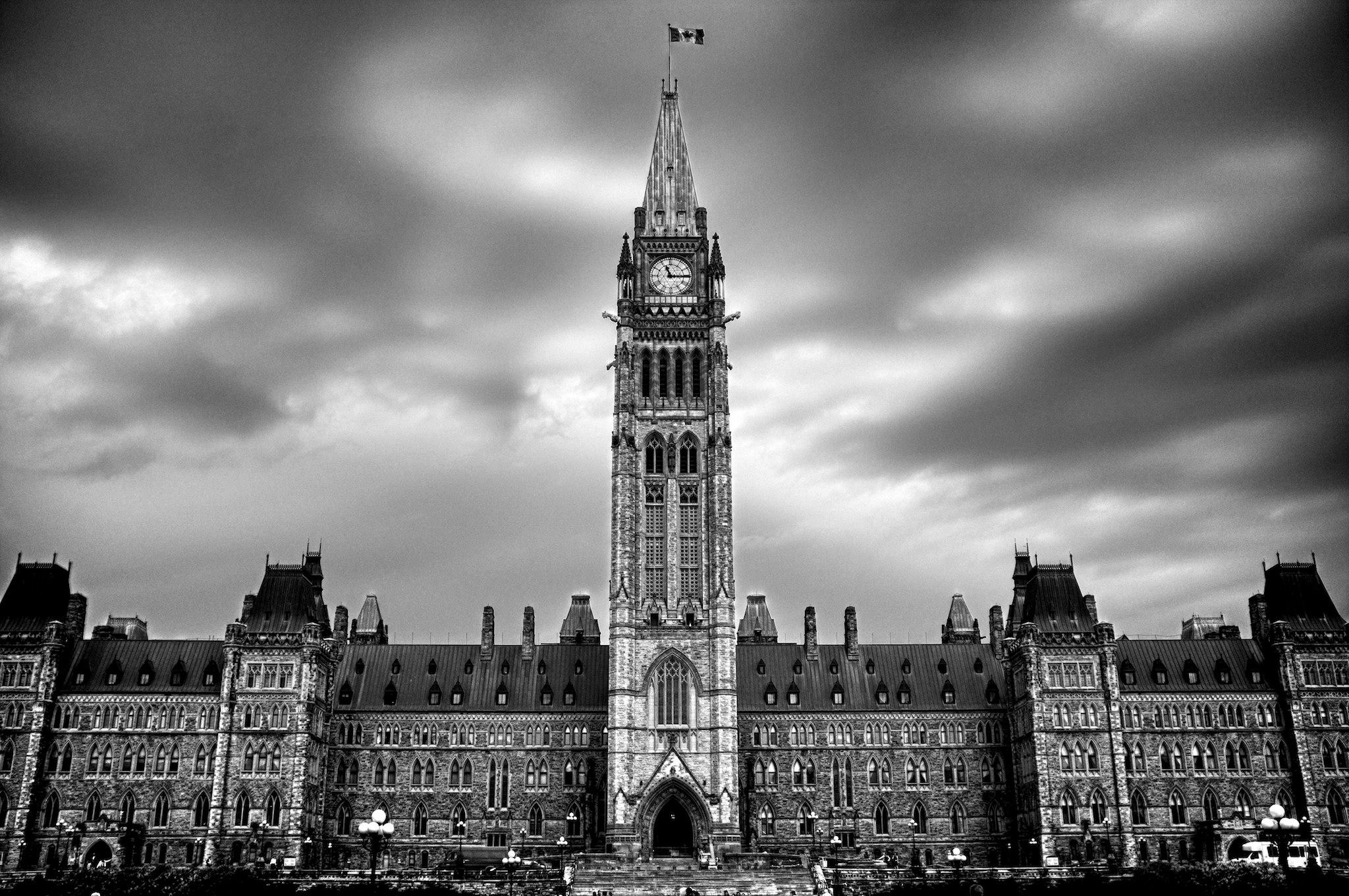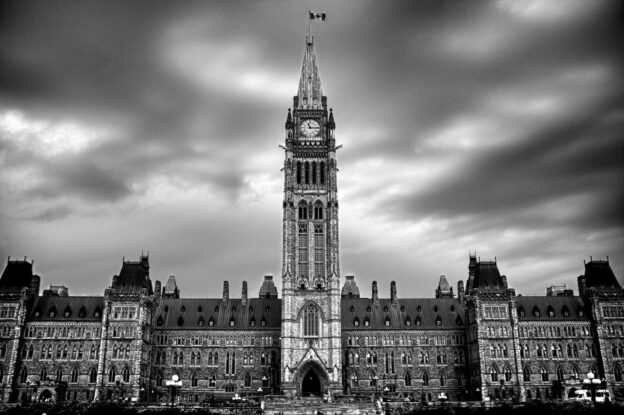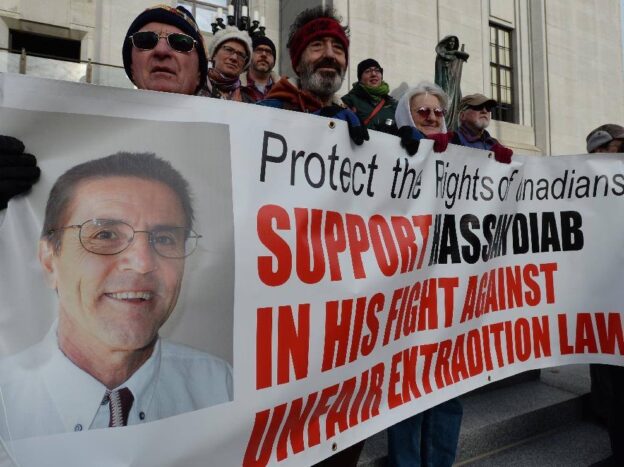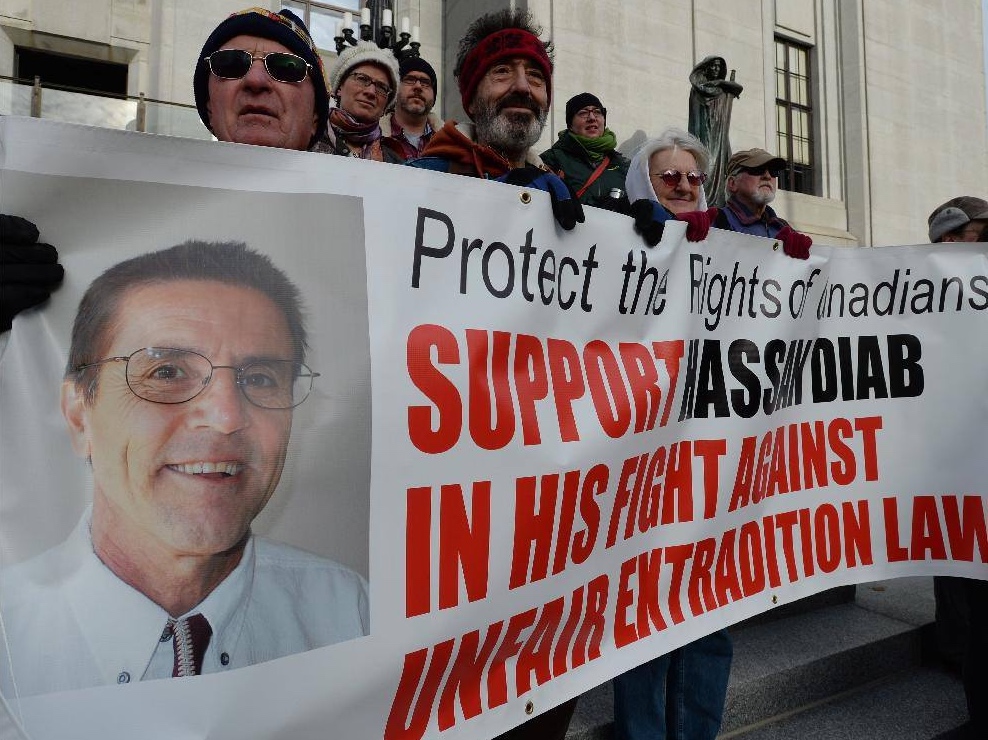
During this election season, the original pretence for the tariffs and annexation threats from US President Trump — the supposed “protection of the northern border” from exaggerated concerns and straight-up lies over drug smuggling and irregular migration — and the emergency measures put in place in response, must not go unchallenged.
As a coalition that came together in the wake of the rushed adoption of the Anti-terrorism Act in 2001 and the surge in security powers, surveillance, racial profiling and civil liberties violations that followed, and has worked to protect fundamental freedoms for the last 23 years, the ICLMG has several warnings for Canadian voters: We have seen this before, and we must oppose the knee-jerk expansion of security powers and greater security integration with the United States.
Trump’s threats are definitely worrisome. However, we mustn’t let fear dictate our actions. We must protect ourselves, but that can’t be done at the expense of rights and freedoms. By that we mean: we will not be protected if our own rights and freedoms are further eroded.
The Canadian national security apparatus has consistently transformed fears into more powers and resources for themselves, leading to the explosive expansion of surveillance powers, the militarization of our borders, the criminalization of dissent, or the erosion of due process in the courts. Most recently, we saw this with the Countering Foreign Interference Act, which was adopted in record time in summer 2024 with little study or debate, despite it making wide-ranging changes to Canadian legislation that undermine free expression, international cooperation, the ability to challenge government decisions, and increases surveillance and data collection powers.
Now we are seeing it again in Canada’s Border Plan, whipped up in response to the Trump administration’s threats: $1.3 billion invested in the securitization of Canada’s border to try to appease the US president’s overhyped concerns about fentanyl and migration at the northern border, that are largely based in exaggerations and lies and, in any case, actually appear to be a red herring to conceal his predatory economic and trade goals.
The result is a flurry of new security measures with little clarity and next to no transparency, that once in place will not be undone. This includes the installation of 15 new surveillance towers, the purchase of drones, mobilization of Black Hawk helicopters, all equipped with various forms of surveillance tools; the commitment of 10,000 frontline personnel to the border; the creation of a supercharged Joint Operational Intelligence Cell, to better share intelligence between Canadian agencies, including the RCMP, CBSA and CSIS, and with allies, primarily the United States; investing $200 million in Public Safety Canada and the Communications Security Establishment – Canada’s version of the US’ National Security Agency – for increased surveillance activities; and the politically-motivated expansion of the terrorist entities list to include, for the first time ever, transnational criminal organizations.
All of this serves to ramp up the securitization — surveillance, information sharing, law enforcement and arrests/detention — of Canada’s response to putative migration and fentanyl “crises.” Not only are migrants and asylum seekers being scapegoated but their search for protection and a better life is being conflated with criminality. This approach undermines the fact that these are human rights and public health issues that should be addressed through improved and extended social programs and rights protections; not border guards, spies and Blackhawk helicopters.
The measures being proposed only serve to further entangle Canada in the United States’ national security regime at a time when doing so is even more dangerous than usual, with threats of annexation, and the weaponization of American national security tools against migrants and asylum seekers, as well as those who protest in support of Palestinian human rights, among other highly-charged political and social issues.
This entanglement is not new: over the past decades there have been multiple efforts by Canada and the US to integrate their security apparatuses, from plans for “Fortress North America” to the ill-fated Security and Prosperity Partnership, and the eventual signing, in 2011, of the less ambitious but still problematic “Beyond the Border” agreement by then-prime minister Stephen Harper and then-US president Barack Obama.
Under the most recent Liberal government, Canada continued to collaborate with the US in a manner that is detrimental to Canadians’ rights and safety. For example, CitizenLab reported in late February, 2025, that since 2022, Canada has been quietly negotiating a bilateral agreement with the US under the US CLOUD Act which would allow US law enforcement to issue warrantless data requests and surveillance orders directly to tech companies and other entities in Canada, without oversight from Canadian courts. The negotiations are ongoing despite Trump’s threats to Canada.
We need to demand that the government take action to disentangle Canada’s national security from the authoritarianism evident in the United States, and enact measures to protect the rights of people in Canada.
There are clear, concrete actions the government can take to do so. They include:
- Revisit and restrict information-sharing agreements, including the exchange of watchlists and other intelligence, with US and other foreign national security agencies, including other Five Eyes nations, unless absolutely necessary for people’s safety.
- Stop negotiations for the Canada-US CLOUD Act agreement.
- Cancel the Safe Third Country Agreement: we cannot be complicit in sending individuals seeking asylum protection back to the US when we know that they will not go through a fair process, risk having their rights violated, and face abusive detention, including at Guantanamo Bay, and likely deportation without recourse.
- Reconsider the billion dollars being shifted into border security, and instead determine where it can be better placed based on the actual needs of people in Canada.
- Update Canadian laws and policies to protect against government surveillance, including facial recognition and online data scraping, to protect against efforts to undermine encryption, and to regulate artificial intelligence tools (especially for national security purposes).
- Resist pressure to expand the use of anti-terrorism measures. This includes the recent decision to add criminal organizations to the discretionary, politicized and due process-violating terrorist entities list, which also problematically stretches the definition of terrorism.
- Protect freedom of expression and dissent, including by denouncing repression south of the border — such as the denial of entry into the US of a Canadian author allegedly based on his anti-genocide advocacy, and the efforts to deport student activist Mahmoud Khalil — and by amending vague and overly-broad Canadian “national security” laws that allow surveillance, sharing of information or arrest for simply engaging in acts of free expression.
The next federal government should also hold a public consultation on the future of Canadian national security policy, given this new international context.
We also need better accountability and transparency. It is worth noting that while a ‘Fentanyl Czar’ was appointed in a matter of weeks, the government had failed to provide any updates on the establishment of the new Public Complaints and Review Commission (PCRC), which would serve as an independent watchdog for the activities of the RCMP and CBSA. Legislation to enact the PCRC passed in October 2024, but Public Safety Minister David McGuinty hasn’t mentioned it once since being appointed, despite media inquiries.
It’s important to remember that Canada’s national security apparatus has been used to violate the rights of Canadians many times: from complicity in the torture and detention of Canadians abroad such as Maher Arar, Abdullah Almalki, Ahmed El Maati, Muayyed Nureddin and Abousfian Abdelrazik; illegally collecting private data and monitoring our online activities; to spying on, harassing and arresting journalists, Indigenous land defenders, and anti-genocide protesters as well as violently dismantling camps; and using AI and facial recognition tools without authorization and oversight.
The Trump presidency is a present and devastating warning of the dangers of building a massive and powerful national security and law enforcement system: you never know in whose hands it could land. And we must not let this hostile neighbour distract us from the abuses of power in our own country.
Instead of further integrating our national security with that of the US, now is the time to chart our own path based on upholding human rights and civil liberties, providing protections to the vulnerable, and investing in social programs that create and protect real human security.
Since you’re here…… we have a small favour to ask. Here at ICLMG, we are working very hard to protect and promote human rights and civil liberties in the context of the so-called “war on terror” in Canada. We do not receive any financial support from any federal, provincial or municipal governments or political parties. You can become our patron on Patreon and get rewards in exchange for your support. You can give as little as $1/month (that’s only $12/year!) and you can unsubscribe at any time. Any donations will go a long way to support our work. |




 Feb. 21, 2025, OTTAWA – The International Civil Liberties Monitoring Group (ICLMG) welcomes today’s commitment by Member of Parliament and Liberal leadership candidate Chrystia Freeland to take action to address the serious problem of systemic discrimination in the Canada Revenue Agency’s regulation of charities in Canada, particularly in regard to Muslim-led charities.
Feb. 21, 2025, OTTAWA – The International Civil Liberties Monitoring Group (ICLMG) welcomes today’s commitment by Member of Parliament and Liberal leadership candidate Chrystia Freeland to take action to address the serious problem of systemic discrimination in the Canada Revenue Agency’s regulation of charities in Canada, particularly in regard to Muslim-led charities.
